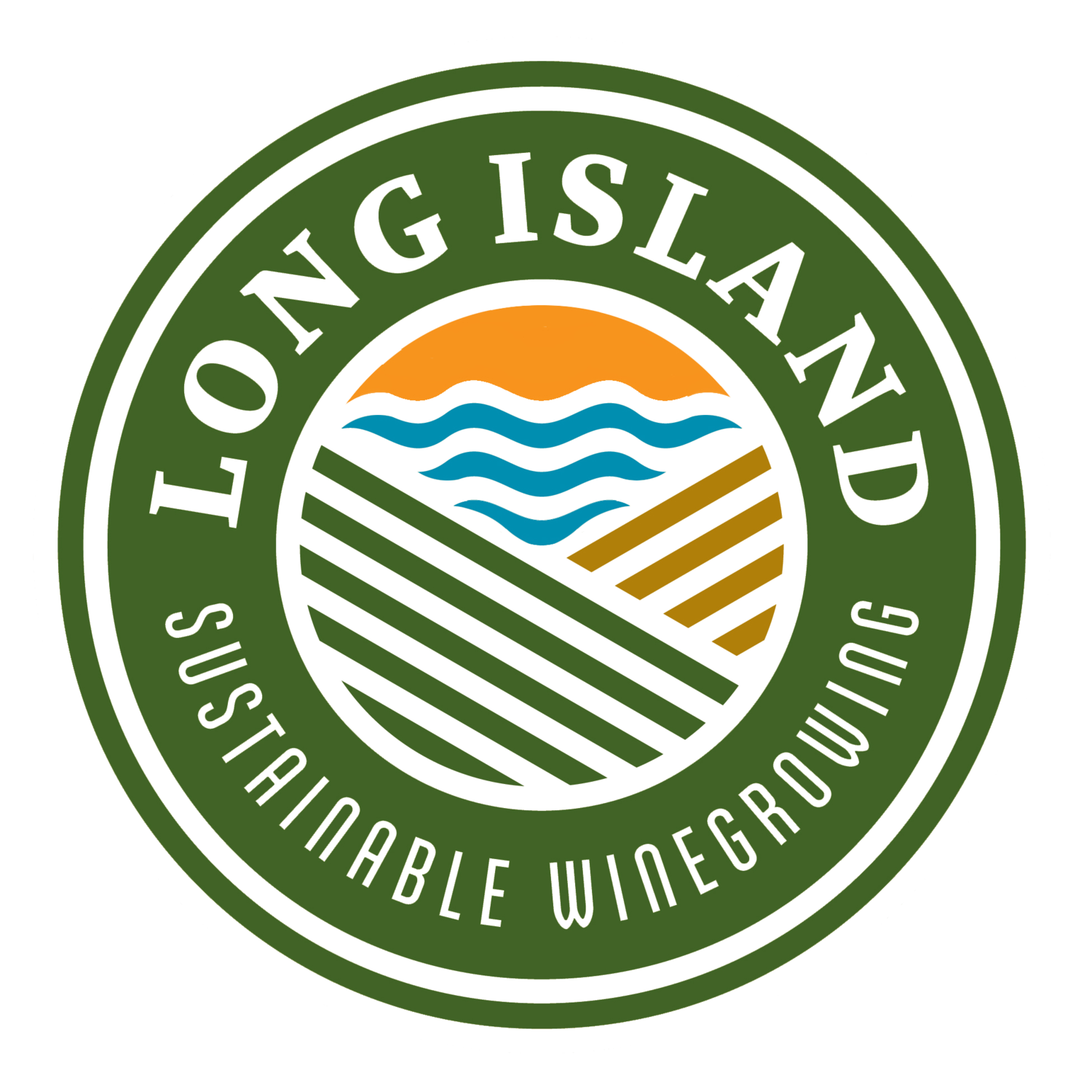The Long Island Sustainable Winegrowing Movers & Makers Interview Series is a celebration of the individuals behind the sustainable wine movement on Long Island. These winemakers and grape growers are on the forefront of reducing environmental impact while investing in the future of Long Island wine. Each featured vineyard is LISW Certified, and each Sustainability Leader has a unique strategy for continuous improvement beyond certification. The fruits of their labor include reduced carbon emissions, healthy soil, delicious wine, and so much more!
Interview with Rich Olsen-Harbich, Bedell Cellars
Bedell Cellars is a family-owned winery and sustainably farmed vineyard on the North Fork of Long Island. With a commitment to quality and creativity, Bedell wines are hand-crafted in small batches using methods that define the regional style and showcase Long Island’s unique maritime terroir.
Rich Olsen-Harbich is a pioneer in Long Island winemaking with over 30 years of experience. He wrote the North Fork of Long Island appellation into existence in 1986 and developed the first Bordeaux/Long Island consultation partnership with M. Paul Pontallier of Chateau Margaux. He also helped found Long Island Sustainable Winegrowing, the first third-party certification program for vineyard sustainability on the East Coast.
LISW: What inspired you to be a part of the sustainable wine movement on Long Island?
ROH: I’ve been interested in the natural world as long as I can remember, and that interest has followed me throughout my career as a viticulturalist and winemaker. In 2012, a group of us on the East End thought the time was right to define and codify sustainable practices for vineyards in our region. We live and make wine in such an environmentally sensitive area that it felt necessary to embrace eco-friendly practices in how we grow our grapes. I was personally inspired by people like Cliff Ohmart and Chris Serra who have worked to establish successful programs out west. Both of them were very helpful in assisting us in developing LISW.
LISW: What sustainability practices do you apply in your vineyard/winery?
ROH: I like to understand and practice sustainability according to its true definition – taking into account the environment, economics and social equity in equal measures. The LISW workbook has close to 200 different practices that we have to follow in order to become certified. These include limiting nitrogen applications, utilizing IPM, using softer, more eco-friendly materials to control insects and diseases, establishing an ecological compensation zone for biodiversity and many others. In addition, not only do we want to take good care of our vines, we also want to take good care of our people who work in the vineyard and winery. Of course, all of this needs to make good economic sense in order to make our businesses truly sustainable. So far, I love the results and wouldn’t want to grow grapes any other way.
LISW: What are some of the benefits you see from sustainable winegrowing?
ROH: Sustainability makes us pay more attention to details both large and small. When you pay more attention to what you’re doing, you typically achieve better results. I believe that since we’ve been in the program our groundwater is cleaner, our vines are healthier, our workers are happier, and our wines are more delicious.
LISW: What sustainability trends or technologies are you excited for in the future of Long Island wine?
ROH: I’m excited about two areas of research that are currently taking place in viticulture. One is the development of an Ultra-Violet light “sprayer” at Cornell University that has shown great potential in controlling diseases like powdery and downy mildew. It can only be used at night, but it has the ability to be a game changer in the vineyard. I also think there is a lot of exciting work being done by grape breeding programs – through both traditional as well as transgenic methods. New hybrids and crossings are being developed in Europe with great success and many plant breeders are showing good results developing disease resistant varieties that will require less off-farm inputs.
Long Island is still a very young wine region with room to grow. That is the essence of sustainability – one never gets to an end game but continues to work towards a pathway of improvement. We are learning more every year and our wine quality continues to improve in leaps and bounds. Our continued confidence in our terroir has led us to develop a unique wine style that is found nowhere else in the U.S. – low alcohol, crispy natural acidity and intense aromatics. I think our wines right now can stand up to any in the world – and I think the best is yet to come. That to me is very exciting.
To learn more about Rich Olsen-Harbich and Bedell Cellars visit: https://www.bedellcellars.com/




